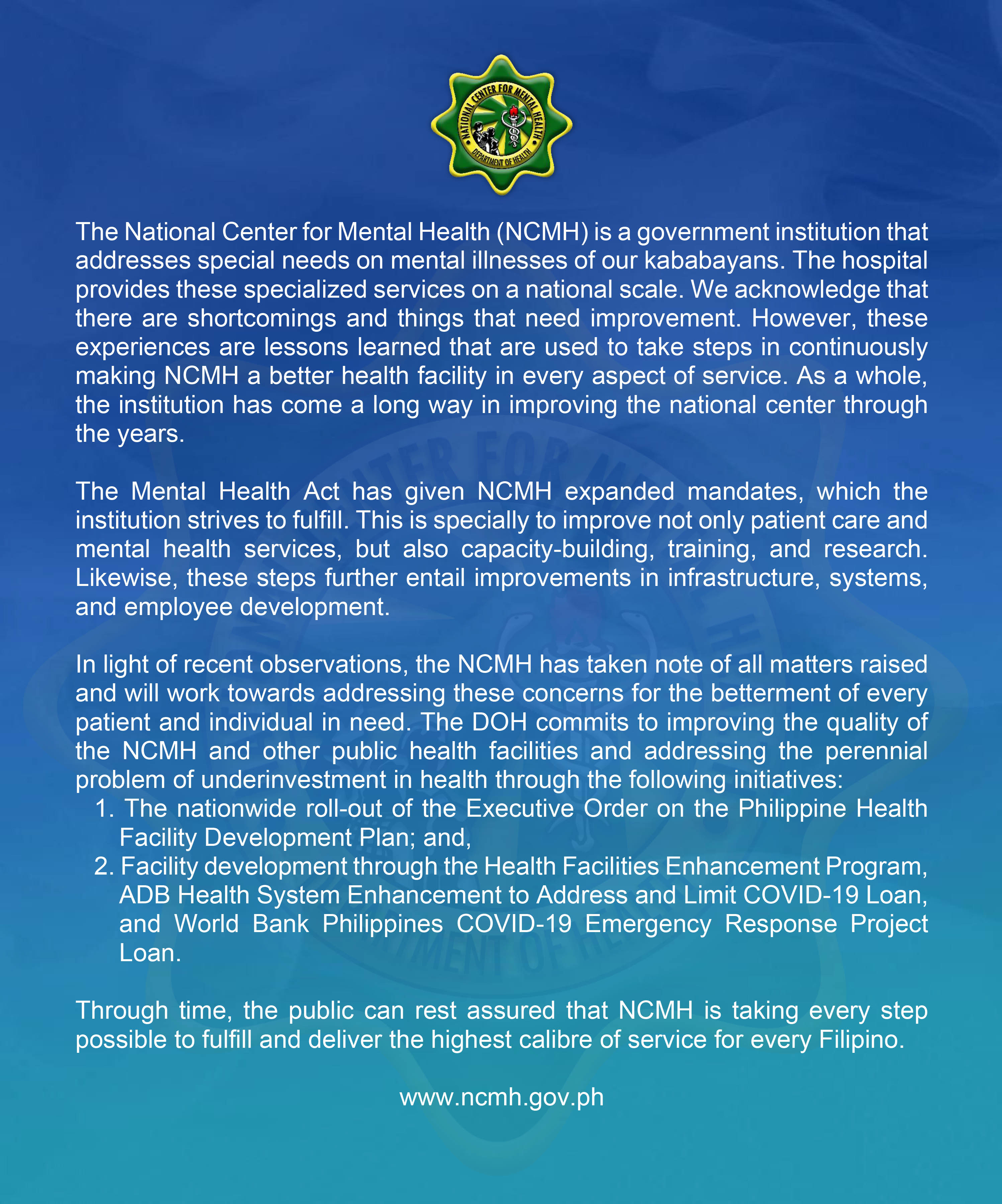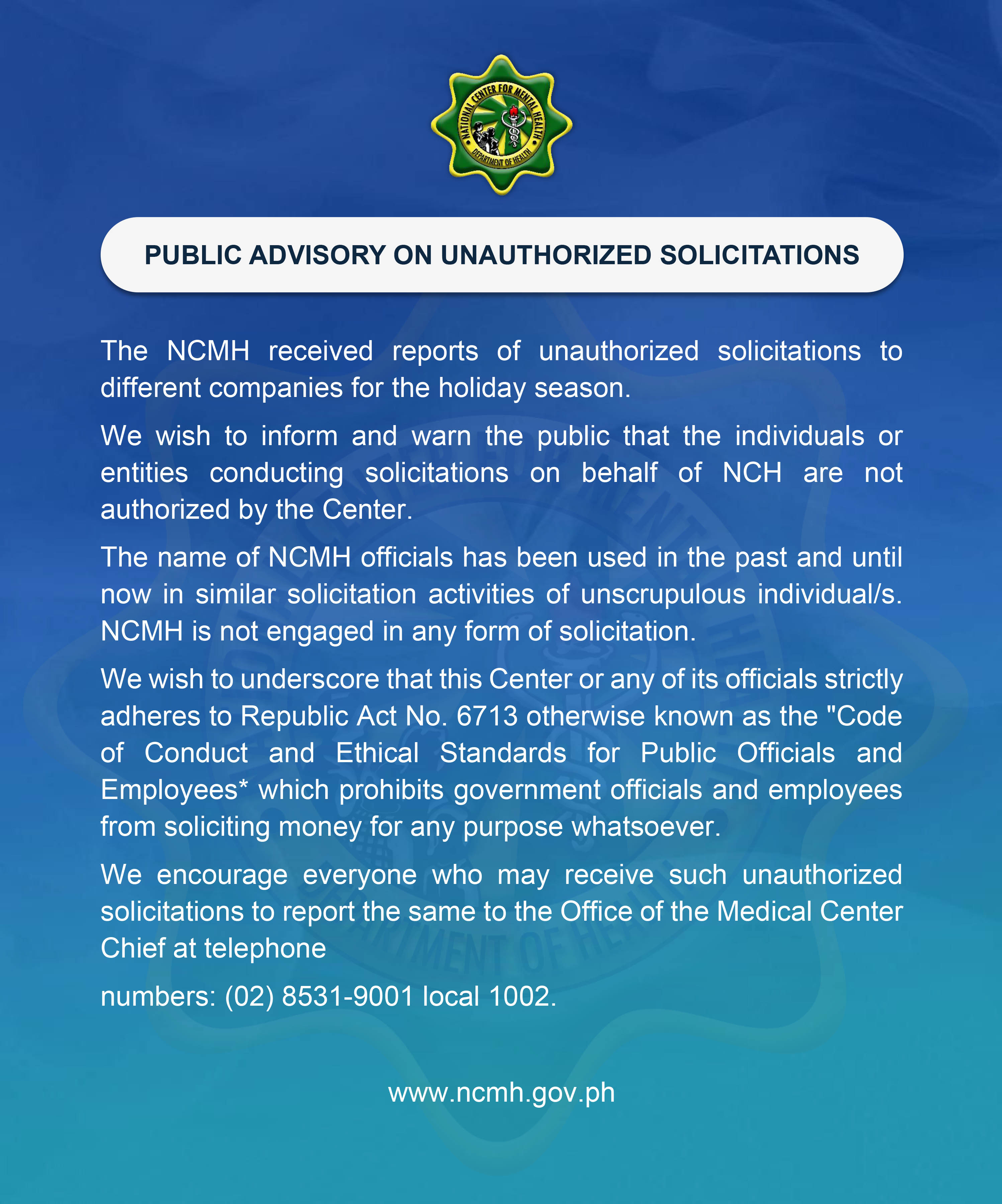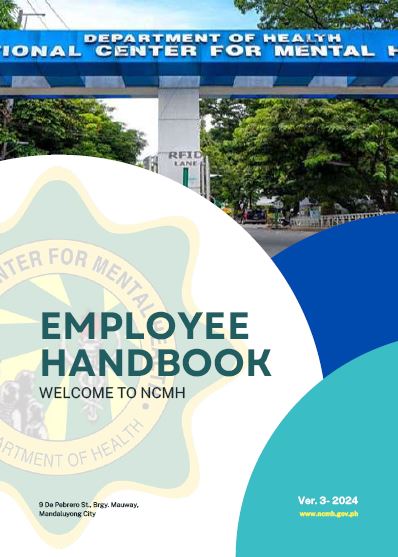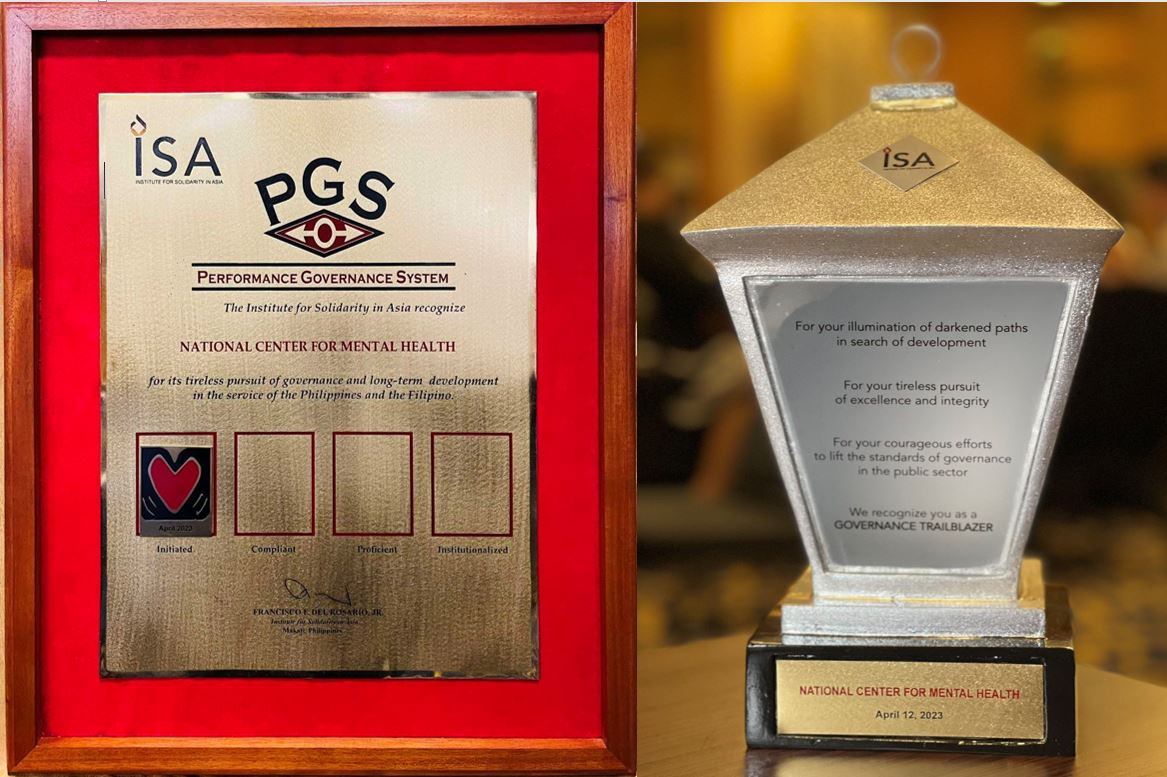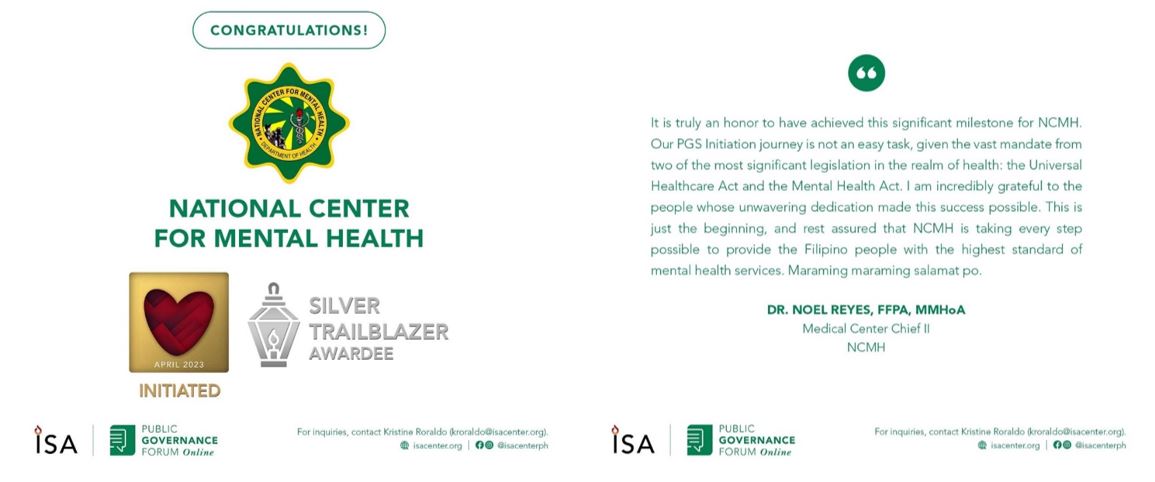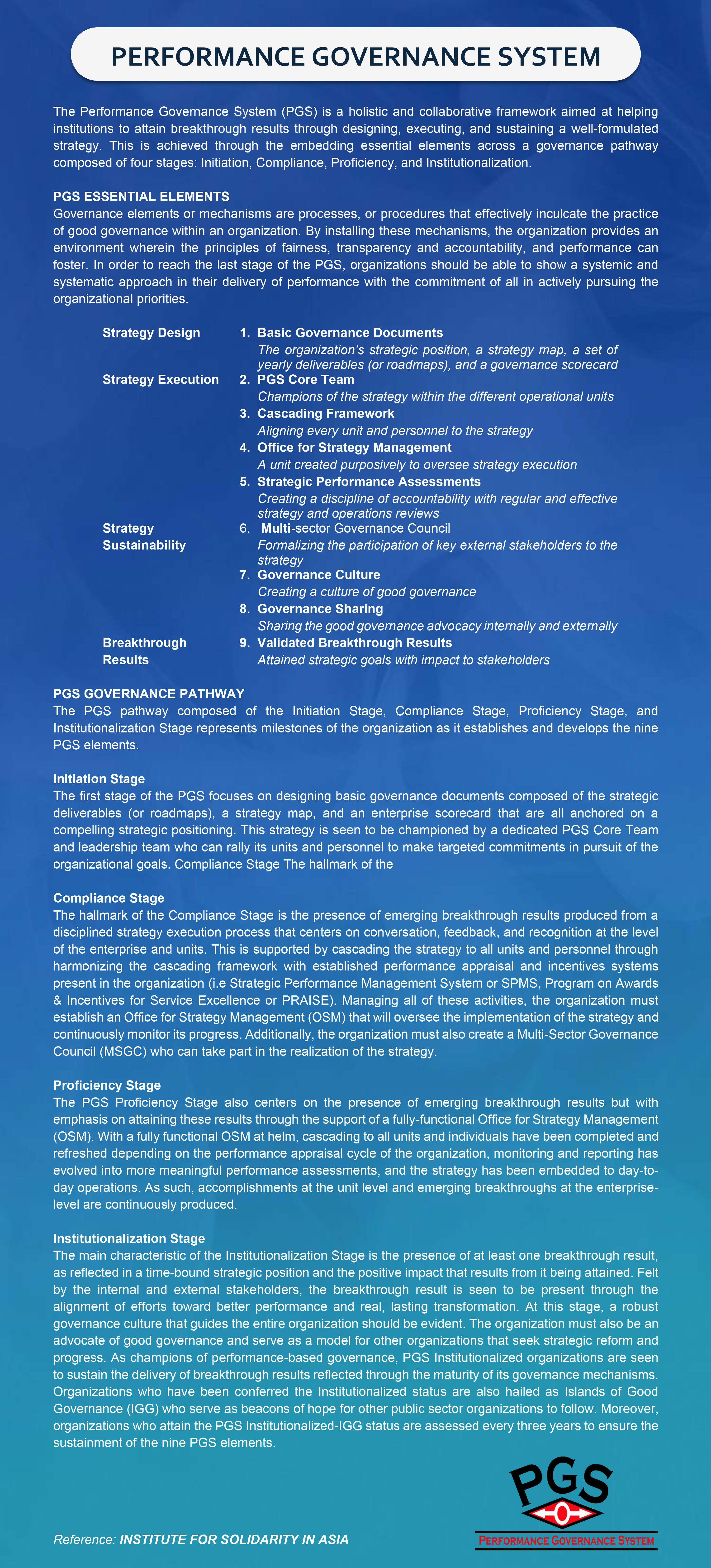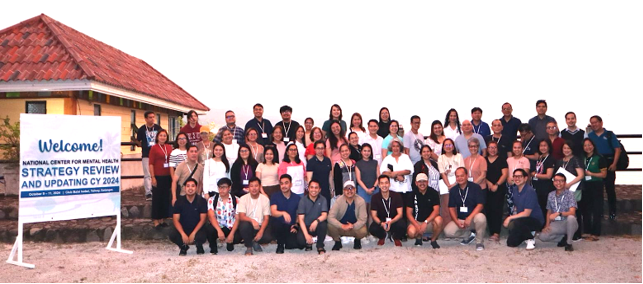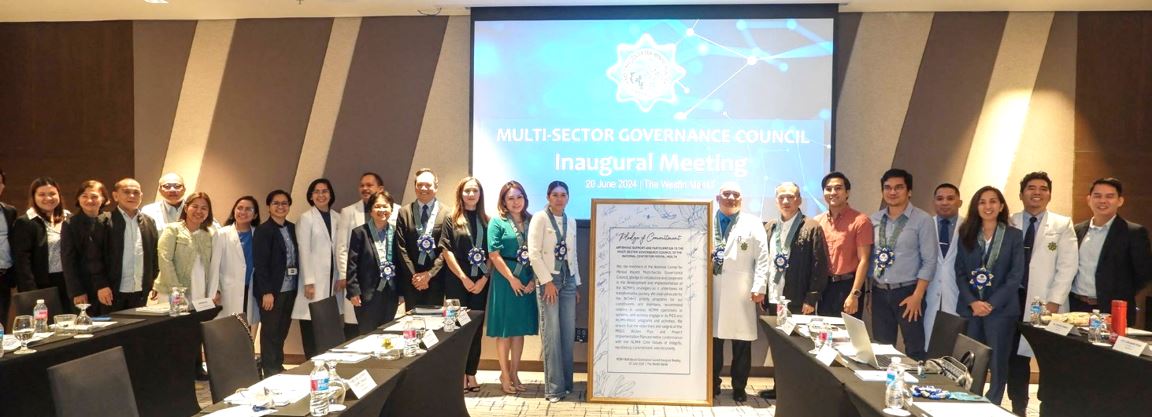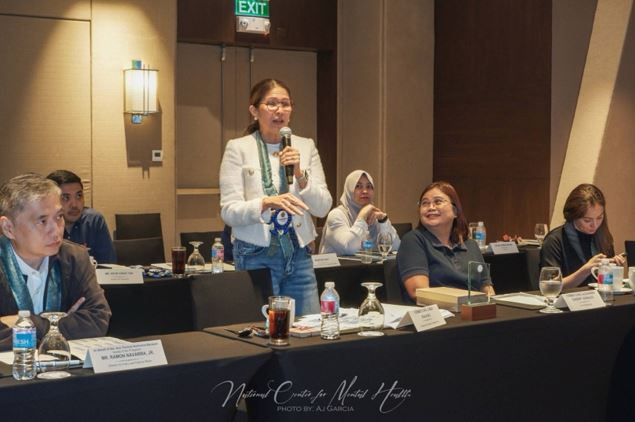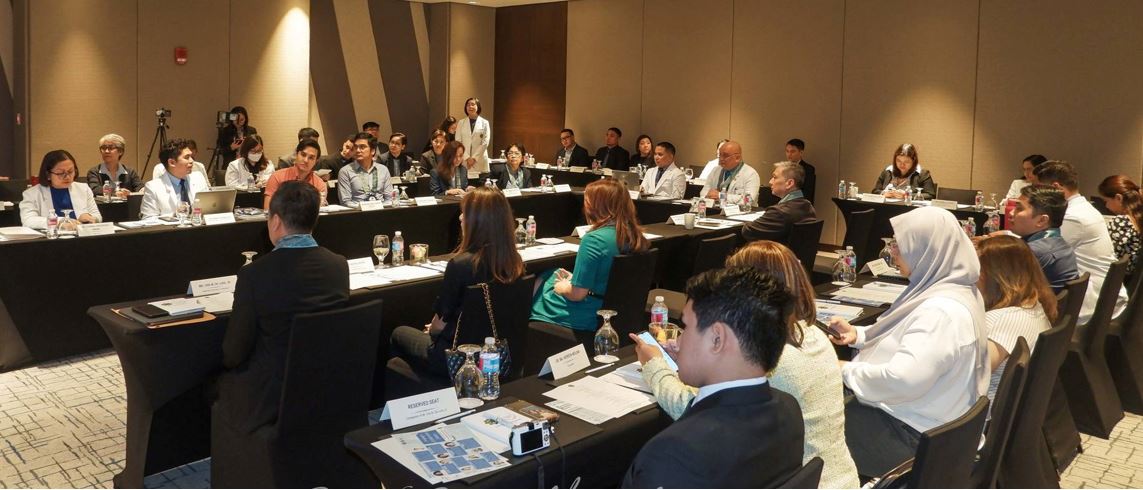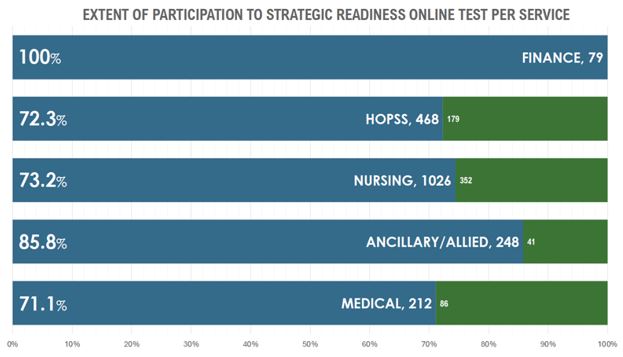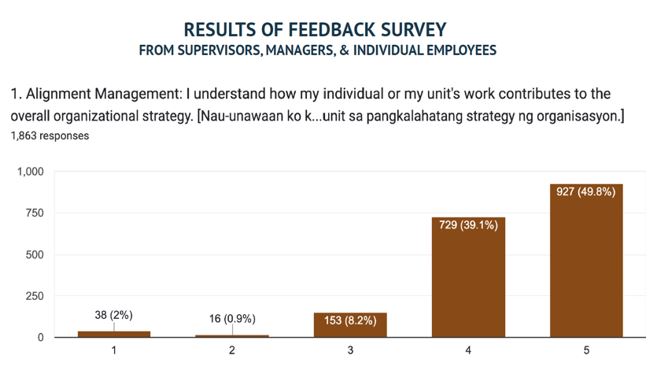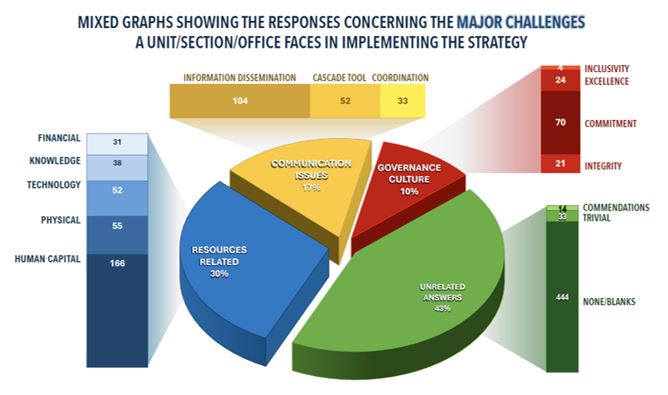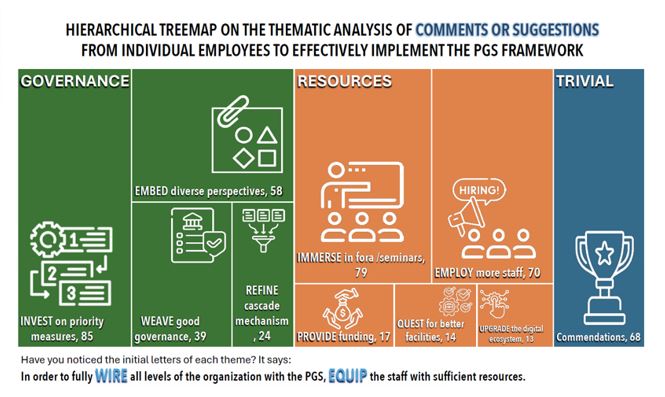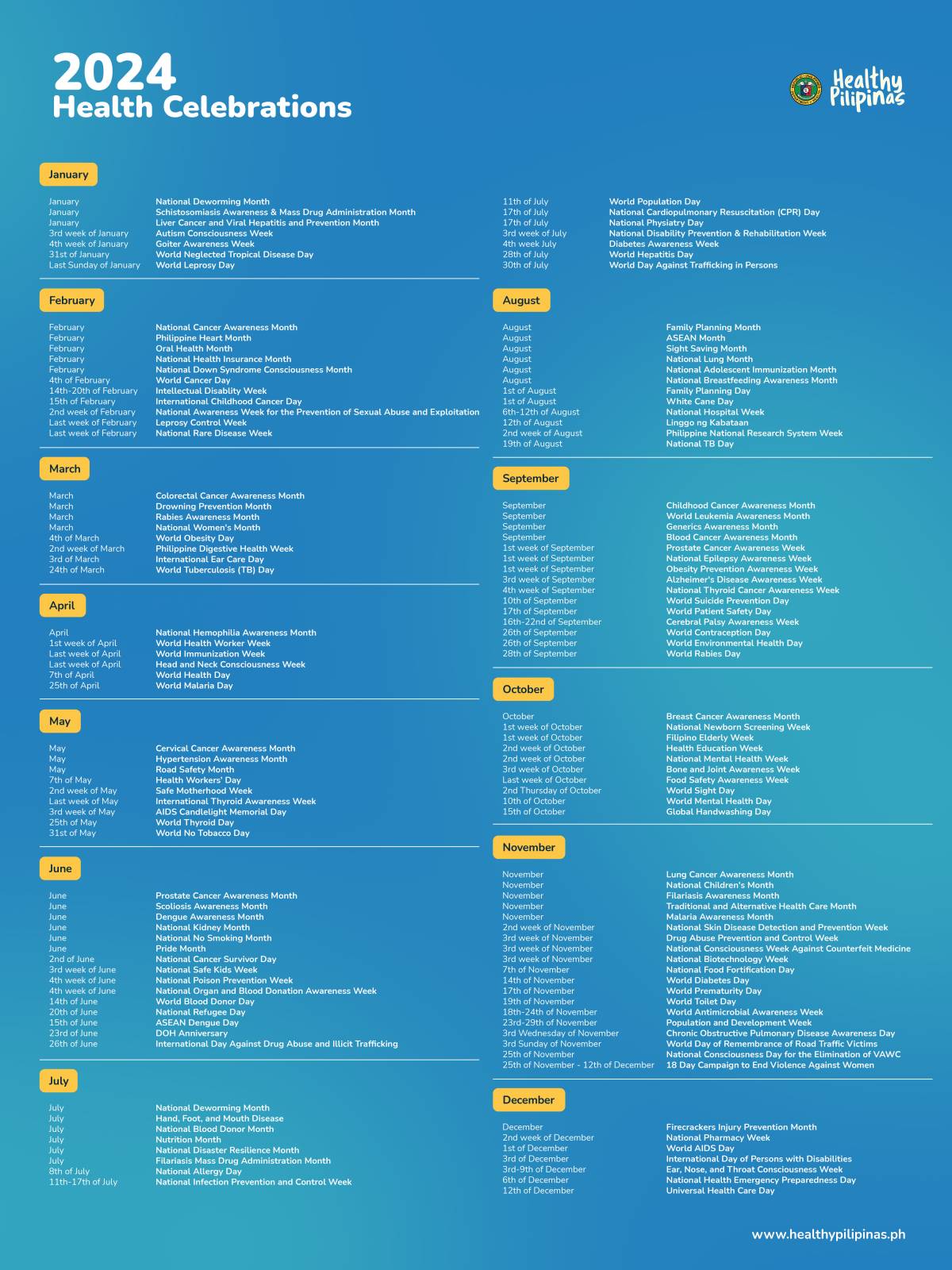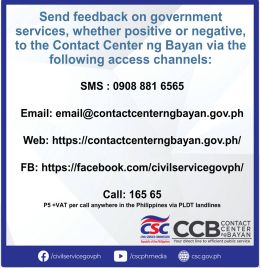- Category: Performance Governance System
Performance Governance System
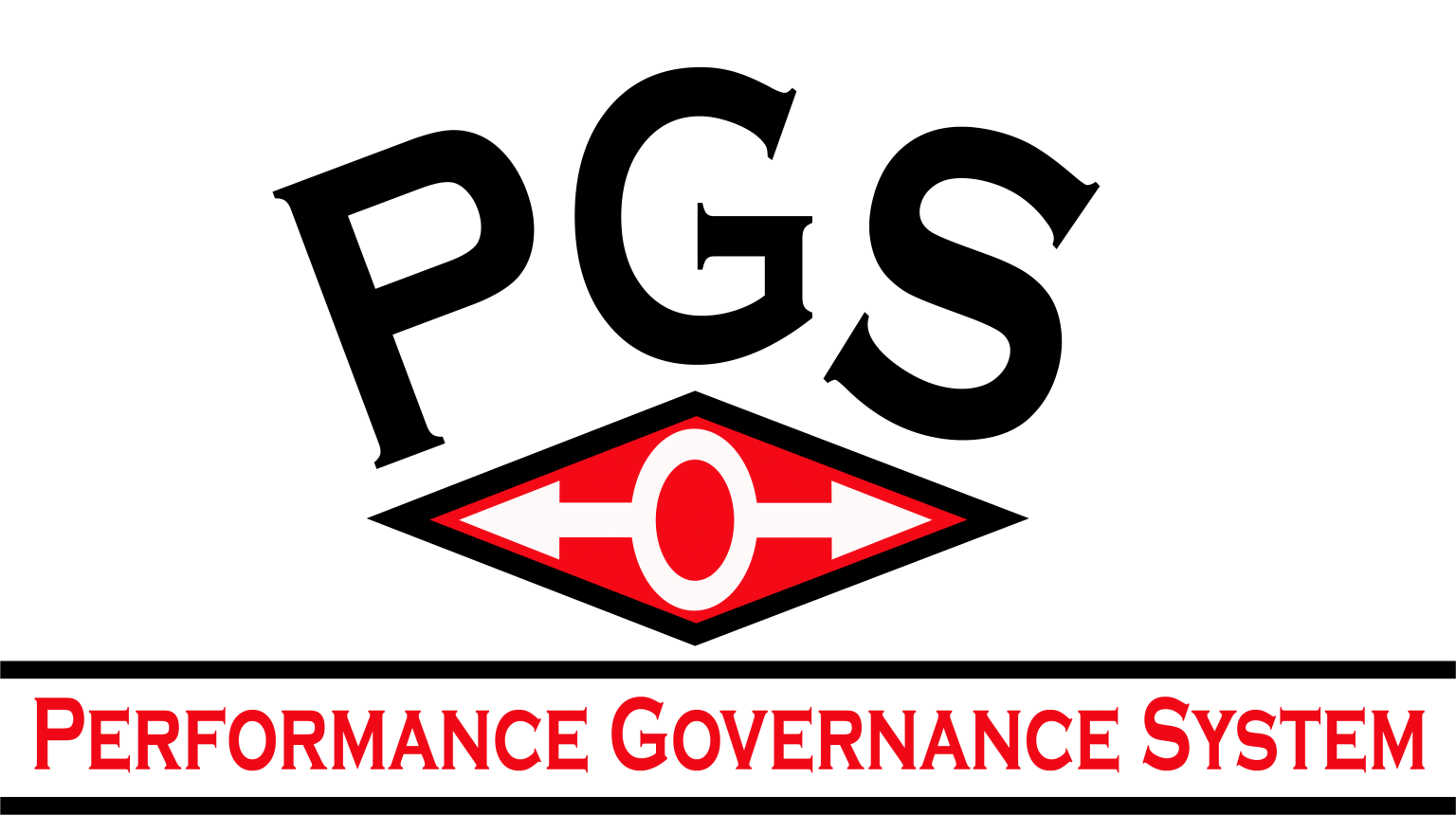
PGS Updates
Advancing Governance for Mental Health: NCMH Organizational Assessment Findings and Recommendations
Advancing Governance for Mental Health: NCMH Organizational Assessment Findings and Recommendations
The National Center for Mental Health (NCMH), in collaboration with the Institute for Solidarity in Asia (ISA), conducted an organizational assessment to evaluate its governance mechanisms under the Performance Governance System (PGS). This initiative aimed to measure the hospital's strategic readiness and alignment with its mission of becoming a "3500-bed National Specialty Center enabling a national network of mental health centers." The study utilized surveys, interviews, and focus group discussions with 213 employees, representing 10% of the hospital's workforce, and key leadership figures. The findings highlighted significant progress in strategic alignment but also identified areas requiring refinement and support to enhance the hospital's governance framework.
Key Findings:
- High Strategic Awareness: 97.7% of respondents were aware of NCMH’s strategic map and PGS framework, with 79.8% strongly believing in the hospital’s vision and mission. Additionally, 76.1% expressed a solid understanding of the institution’s strategic direction by 2025.
- Leadership Commitment: Respondents praised the Medical Center Chief (MCC) and Management Team for championing good governance, with 77.9% highlighting the MCC's dedication to empowerment and alignment with strategic goals. Despite this, some employees expressed the need for clearer communication of strategies across all levels.
- Core Areas for Improvement: Infrastructure, manpower, and research were identified as the top priorities. Suggestions included expanding facilities, improving nurse-to-patient ratios, and fostering evidence-based mental health practices. Challenges such as budget constraints, titling concerns, and resistance to organizational changes were also noted.
Notable Early Wins:
NCMH has achieved commendable milestones, including recognition as Level 3 hospital management in its pandemic response, the nearing completion of three major infrastructure projects, and an 86% score in the Green Viability Assessment. These successes underscore its readiness to implement the PGS framework and further its strategic ambitions.
Recommendations:
- Formalizing the Office for Strategy Management (OSM): Establishing a dedicated OSM with a clear mandate and skilled personnel is critical for sustaining the cascading and execution of the strategy.
- Enhancing Strategic Communication: Both internal and external stakeholders require tailored communication plans to ensure widespread understanding and buy-in for NCMH’s initiatives.
- Activating the Multi-Sector Governance Council (MSGC): Convening a diverse advisory body comprising key partners such as the Department of Health, Commission on Human Rights, and civil society groups is crucial to aligning external resources and expertise with NCMH’s roadmap.
The assessment reaffirms NCMH’s potential to lead the country in comprehensive mental health services. By addressing identified gaps and leveraging its current achievements, the institution is well-positioned to transform into a globally recognized mental health center while driving meaningful, systemic change for all Filipinos.
#GovernanceExcellence #StrategicReadiness #StrategicCommunication
Charting the Future: Advancing NCMH’s Strategic Vision
Charting the Future: Advancing NCMH’s Strategic Vision
The National Center for Mental Health (NCMH) is embracing transformative changes in its core and support strategic processes to deliver impactful mental health services. During the recent Orientation on Strategic Planning Process held at the Pag-Asa Hall on September 13, 2024, Atty. Rico Caraos outlined the processes and resources that need to consider in strategic planning. He also divided Patient Care Roadmap into two (2) Strategic Delivery Units, focusing on balancing healthcare services and upscaling hospital capabilities.
This initiative aligns with the Mental Health Act and Universal Health Care Act, reflecting a commitment to addressing mental health challenges through an evidence-based and inclusive approach. Hence, he emphasized the factors that a unit needs to consider as it may influence the delivery of their strategic commitments, such as capital outlay, human resource, training and capacity development, quality improvement processes, and other dependencies. Central to NCMH's vision-mission statement is the enhancement of its operational framework through a detailed Hospital Development Plan (2023–2028), which was submitted to the Department of Health in February 2023. Moreover, integrated into strategic plan is the Resource Stratified Framework for Specialty Centers, which aims to make health services accessible and available at all levels of care. The plan also prioritizes advanced facilities, interdisciplinary programs, and capacity-building initiatives to support resilient and sustainable mental health services. Areas of focus include licensing upgrades, innovative care services like respite care, sleep laboratory, electronic medical records, among others, and the development of critical infrastructure for an advanced healthcare system at NCMH.
The strategic planning process emphasizes clarity and purpose, leveraging tools such as the strategy map to ensure all objectives align with NCMH's strategic direction. Atty. Caraos highlighted the importance of measurable and actionable goals across key areas: Patient Care, Training, Research, Linkages, Public Mental Health, Human Capital, Infrastructure, Information Technology, and Resource Management. These pillars aim to create a forward-thinking institution that is responsive to national priorities and emerging healthcare demands. He also emphasized that the strategic deliverables committed by each unit should be translated to success indicators in their performance commitment and review forms (PCRs) for accountability.
As NCMH move toward the Performance Governance System (PGS) revalida, scheduled for 2025, NCMH is rallying its community to track progress, strengthen partnerships, and refine its strategies. Guided by a mantra of "Begin with the end in mind," this collective effort underscores the institution's unwavering dedication to mental health excellence, fostering hope and recovery for all. Together, we are building a brighter future for mental health in the Philippines.
#NCMHStrategicPlanning #MentalHealthExcellence #PGSCompliance
NCMH 2nd Annual Strategy Review
NCMH 2nd Annual Strategy Review: Progress, Strategic Realignment, and Collaborative Action
The National Center for Mental Health (NCMH) successfully conducted its Annual Strategy Review at Club Balai Isabel in Talisay, Batangas, marking a significant milestone in its journey toward strategic excellence. Moderated by Atty. Rico Caraos, Chief of the Office for Strategy Management (OSM), the event brought together the Leadership Team and PGS Core Team to gather valuable insights, refine strategies, and ensure alignment with the organization’s overarching priorities.
Dr. Noel Reyes, the Medical Center Chief, opened the session with a compelling lecture on leadership, emphasizing the critical role of visionary guidance and collective action in driving institutional success. His message underscored the importance of empowering teams, fostering collaboration, and maintaining a steadfast focus on NCMH’s mission to deliver transformative mental health services. The review also emphasized the importance of translating strategic commitments into measurable success indicators to be integrated into the performance commitment and review forms (PCRs) of relevant stakeholders.
Programs Ready for Implementation and Strategic Priorities
Several initiatives have been marked as "Good to Go", reflecting their readiness for immediate implementation. These include the deliverables from the Psychosocial Rehabilitation and Recovery Program, Psychology, Nutrition-Dietetics, the Crisis Hotline, and most units under Hospital Operations and Patient Support Service (HOPSS) and Finance Service. Other deliverables, like the Binhi ng Pag-asa Program, Fellowship Programs of the Training Office, Sleep Medicine, and the Safety and Experience Roadmaps require timeline adjustments to align with deliverables. Nursing care bundles have been updated to better fit operational feasibility, addressing time-sensitive targets while maintaining service quality. Public mental health initiatives remain a top priority, with programs such as the WoW KuMHustahan Mental Health Caravan and crisis response systems receiving renewed emphasis as well as the development of a Public Mental Health Standardized Training Program and an internal NCMH Research Agenda to complement the identified gaps and opportunities in other areas.
Strategic Realignment and Reorientation
Some implementing units must revisit and update their roadmaps to reflect emerging opportunities for collaboration and ensure alignment with national health priorities. Focus areas include Pharmacy, Activity Therapy, Linkages, and Research, where inter-departmental collaboration and strategic refinement are crucial for delivering holistic and recovery-oriented mental health care. Nine implementing units were specifically tasked with revising their strategic deliverables to align with the Resource Stratified Framework for Specialty Centers. Notable updates include the integration of the BUCAS center, scheduled for 2025, which will enhance services for aged care and wellness, and the development of standard diagnostic packages for mental health by the Clinical Laboratory Section. These revisions are pivotal in ensuring that NCMH’s initiatives are consistent with the evolving demands of specialty mental health care in the country. The review further emphasized the value of inter-departmental collaboration in allied mental health support to provide comprehensive and patient-centered care. Recovery-oriented care models for child, adolescent, forensic, and aged care were highlighted, with plans for technical assistance and training modules to enhance mental health services. These efforts underscore the institution’s commitment to bridging service gaps and fostering inclusive care models. To ensure these updates are effectively crafted and implemented, Atty. Caraos will lead a strategy refresh session to reorient the implementing units in refining their roadmaps and deliverables. This process will lay the groundwork for presenting cohesive and strategically aligned plans to the Leadership Team for vetting and approval.
Path Forward and Recommendations
To maintain momentum, the review underscored the need to finalize foundational documents like the Manual of Operations (MOP) and allocate resources effectively. Comprehensive staff training and strategic communication with stakeholders were also identified as critical for achieving organizational goals. By addressing gaps in readiness, fostering collaboration, and ensuring alignment with national frameworks, NCMH is poised to advance its mission of providing transformative mental health care.
The review concluded with a collective commitment to aligning strategies, enhancing service delivery, and fostering a culture of accountability and innovation, ensuring that NCMH remains at the forefront of mental health advocacy and care in the Philippines.
NCMH Cascading of PGS 2024 Strategic Deliverables
NCMH Cascading of PGS 2024 Strategic Deliverables
The National Center for Mental Health (NCMH) successfully conducted its second vetting and approval session for the strategic deliverables for 2024. Atty. Rico Caraos moderated the program, during which representatives from various implementing units presented and defended their strategic commitments and contributions for 2024 with members of the Leadership Team.
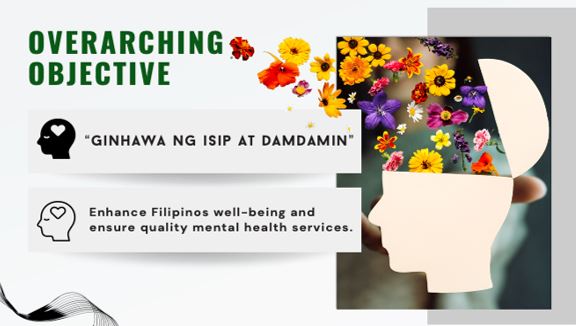
To ensure alignment and coherence, Atty. Caraos harmonized the metadata with key policy documents, including Department Memorandum No. 2023-0068 (2023-2028 Hospital Scorecard Indicators), Administrative Order No. 2023-0015 (8-Point Action Agenda as the Medium-Term Strategy of the Health Sector for 2023-2028), and the amended NCMH Basic Governance Documents (Charter Statements, Governance Scorecard, and Portfolio of Strategic Initiatives for 2025).
Following this, the PGS Core Team leaders facilitated the presentation of strategic commitments and contributions developed during the Strategy Refresh held on October 2, 2023, at the Richmonde Hotel in Ortigas. The leadership team provided constructive insights and recommendations, focusing on the feasibility and readiness of each unit for the proposed deliverable. While a few units were advised to reconsider their commitments due to operational constraints or minor adjustments, the majority demonstrated readiness to implement their plans.
After a thorough review and cleaning process, a total of 108 strategic commitments for 2024 were finalized, encompassing both core and support processes. These commitments represent a cohesive and forward-looking plan for advancing NCMH'S mission of delivering high-quality mental health services in alignment with national health objectives.
For further information about the Metadata, please see this link.
NCMH Marks Milestone with the Inaugural Meeting of its Multi-Sector Governance Council
NCMH Marks Milestone with the Inaugural Meeting of its Multi-Sector Governance Council
The National Center for Mental Health (NCMH) achieved a historic milestone with the inaugural meeting of its Multi-Sector Governance Council (MSGC) held yesterday, June 20, 2024, at The Westin Manila. This landmark event brought together an esteemed group of representatives from various sectors, each contributing their unique expertise and commitment to advancing mental health in the Philippines.
Among the distinguished attendees were Ms. Cristina “Chiqui” Roa-Puno, Mr. Ramon Navarra (representing Sen. Risa Hontiveros), Dr. Jasmine Vergara, Mr. Cris M. De Luna, Jr., Dr. Leonor I. Cabral-Lim, Mrs. Alexandria “Queenie” Gonzales, Mr. Christopher P. Hernandez, Mr. Michael Angelo Pereira, Ms. Cristine Reyes, as well as members of the NCMH executive committee and key staff. The MSGC serves as a vital body of external stakeholders, providing strategic insights and collaborative assistance to enhance NCMH’s services and realize its ambitious goals.
The meeting began with a warm welcome from Dr. Beverly Azucena, Chief of the Hospital Service, followed by a heartfelt message from the Medical Center Chief, Dr. Noel V. Reyes. An engaging audio-visual presentation on the NCMH’s Performance Governance System (PGS) Journey showcased the center’s ongoing initiatives and strategic plans. Atty. Rico Caraos, Chief of the Office for Strategy Management, outlined the MSGC Terms of Reference under the initiative titled Ugnayang Pangka-Isipan. During the morning session, MSGC members were introduced to NCMH’s strategic goals and roadmap. The session culminated in the ceremonial signing of a Pledge of Commitment by all attendees, symbolizing their shared dedication to advancing mental health initiatives.
The afternoon session began with the election of MSGC officers. Former Congresswoman Chiqui Roa-Puno and Mr. Michael Angelo Pereira were elected Chairperson and Secretary, respectively. Both expressed their enthusiasm and shared actionable insights on how they can support the center’s objectives. This was followed by the MSGC’s formal meeting with the Leadership Team and the PGS Core Team, during which members aligned their interests with specific areas of the strategic roadmap. These expressed commitments will be developed into actionable plans, reinforcing the council's active role in NCMH’s endeavors. Dr. Rodney Boncajes, the focal person for Stakeholder Engagement, delivered closing remarks, emphasizing the importance of collaborative efforts in achieving NCMH’s vision.
The establishment of the MSGC is a pivotal step in fulfilling NCMH’s mandate under the Mental Health Act. The council’s support will empower the NCMH to enhance its clinical practice, training, and research initiatives, propelling it toward becoming the National Specialty Center for Mental Health. This endeavor aligns with the center’s vision to be an internationally recognized leader in mental health, fostering a functional network of mental health facilities and ensuring comprehensive care for all Filipinos.
Through this groundbreaking initiative, the NCMH is poised to create a profound and lasting impact on the nation’s mental health landscape, steering the Philippines toward a more inclusive, supportive, and mentally healthy future.
NCMH Strengthens Strategic Direction
Charting the Future: Advancing NCMH’s Strategic Vision
The National Center for Mental Health (NCMH) is embracing transformative changes in its core and support strategic processes to deliver impactful mental health services. During the recent Orientation on Strategic Planning Process held at the Pag-Asa Hall on September 13, 2024, Atty. Rico Caraos outlined the processes and resources that need to consider in strategic planning. He also divided Patient Care Roadmap into two (2) Strategic Delivery Units, focusing on balancing healthcare services and upscaling hospital capabilities.
This initiative aligns with the Mental Health Act and Universal Health Care Act, reflecting a commitment to addressing mental health challenges through an evidence-based and inclusive approach. Hence, he emphasized the factors that a unit needs to consider as it may influence the delivery of their strategic commitments, such as capital outlay, human resource, training and capacity development, quality improvement processes, and other dependencies. Central to NCMH's vision-mission statement is the enhancement of its operational framework through a detailed Hospital Development Plan (2023–2028), which was submitted to the Department of Health in February 2023. Moreover, integrated into strategic plan is the Resource Stratified Framework for Specialty Centers, which aims to make health services accessible and available at all levels of care. The plan also prioritizes advanced facilities, interdisciplinary programs, and capacity-building initiatives to support resilient and sustainable mental health services. Areas of focus include licensing upgrades, innovative care services like respite care, sleep laboratory, electronic medical records, among others, and the development of critical infrastructure for an advanced healthcare system at NCMH.
The strategic planning process emphasizes clarity and purpose, leveraging tools such as the strategy map to ensure all objectives align with NCMH's strategic direction. Atty. Caraos highlighted the importance of measurable and actionable goals across key areas: Patient Care, Training, Research, Linkages, Public Mental Health, Human Capital, Infrastructure, Information Technology, and Resource Management. These pillars aim to create a forward-thinking institution that is responsive to national priorities and emerging healthcare demands. He also emphasized that the strategic deliverables committed by each unit should be translated to success indicators in their performance commitment and review forms (PCRs) for accountability.
As NCMH move toward the Performance Governance System (PGS) revalida, scheduled for 2025, NCMH is rallying its community to track progress, strengthen partnerships, and refine its strategies. Guided by a mantra of "Begin with the end in mind," this collective effort underscores the institution's unwavering dedication to mental health excellence, fostering hope and recovery for all. Together, we are building a brighter future for mental health in the Philippines.
#NCMHStrategicPlanning #MentalHealthExcellence #PGSCompliance
Strategic Readiness Assessment
Strategic Readiness Assessment: Employee Engagement and Organizational Insights
The National Center for Mental Health (NCMH), through its Office for Strategy Management, conducted a comprehensive Strategic Readiness Assessment via Google Form to evaluate the organization’s alignment with the Performance Governance System (PGS) and its ongoing strategic initiatives. The study involved employees from various divisions, excluding those under contract of service or job orders. The survey achieved impressive participation rates, with 100% from Finance Service, 85.8% engagement from Ancillary/Allied Services, 73.2% from Nursing Services, and 71.1% from Medical Services, reflecting strong organizational involvement in strategic initiatives.
Key Findings:
The survey revealed a significant understanding of the PGS among employees, though certain gaps were identified. While most staff demonstrated familiarity with the NCMH Strategy Map and roadmaps, frequent errors in roadmap commitments and monitoring frameworks highlight areas requiring focused training. Feedback from supervisors and managers pointed to challenges in coordination (30%), communication issues (17%), and governance culture (10%) as critical barriers to effective strategy implementation.
Resource and Governance Needs:
Employees consistently identified resource-related challenges as a major concern. Key recommendations included employing additional staff (70 mentions), upgrading digital infrastructure (13 mentions), and enhancing funding for priority initiatives (17 mentions). On governance, respondents emphasized the need for refining cascade mechanisms (24 mentions), embedding diverse perspectives in decision-making (58 mentions), and investing in priority measures (85 mentions). These insights underscore the need for robust resource allocation and governance structures to strengthen organizational alignment with strategic goals.
Cultural and Operational Enhancements:
The thematic analysis revealed strong employee commitment to NCMH’s core values of integrity, inclusivity, excellence, and commitment. However, the study highlighted opportunities to improve communication and streamline coordination mechanisms to foster a cohesive governance culture. Notably, the "WIRE-EQUIP" framework emerged from employee suggestions, emphasizing the need to "Weave" governance practices, "Invest" in priority areas, "Refine" mechanisms, and "Equip" staff with necessary resources for effective strategy execution.
Recommendations and Way Forward:
The assessment demonstrates that while NCMH employees are generally aligned with the PGS framework, addressing gaps in training, communication, and resource management is vital. By enhancing resource allocation, fostering good governance, and implementing structured training programs, NCMH can empower its workforce to achieve its strategic goals. These findings provide a solid foundation for further strengthening the institution’s strategic readiness and commitment to delivering exceptional mental health services.
For more details on the Mock Strategic Readiness Test results, please check this link.
Strengthening Strategic Governance
Strengthening Strategic Governance: OSM Capacity-Building and MSGC Establishment
The National Center for Mental Health (NCMH) has collaborated with the Institute for Solidarity in Asia (ISA) to strengthen its governance and strategic management capacity through targeted training programs for the Office for Strategy Management (OSM) and the establishment of its Multi-Sector Governance Council (MSGC). This initiative underscores NCMH's commitment to advancing mental health and achieving its strategic vision through effective implementation and collaboration.
The OSM is a cornerstone of NCMH’s Performance Governance System (PGS), playing a pivotal role in implementing, monitoring, and sustaining the organization’s strategic initiatives. The training program was designed with clear objectives: to explain the PGS elements and their maturity levels at each stage of the PGS Pathway, define the OSM's role in strategy implementation and monitoring, identify mechanisms for scheduling OSM activities, and assist in selecting relevant sectors and representatives to form the MSGC. In this shared mission to improve mental health services, the Leadership Team, the PGS Core Team, and representatives from various units were actively engaged, reinforcing a collective drive toward NCMH's vision. Every participant's contribution was recognized as essential in advancing this common goal.
The program provided in-depth discussions and practical guidance across several key areas:
- The Office for Strategy Management (OSM): The role and functions of the OSM were clearly delineated, emphasizing its distinction from the PGS Core Team and its critical role in harmonizing strategic deliverables with section-level performance commitments.
- Cascading the Strategy: Participants explored the ideal cascading framework, focusing on aligning organizational goals with unit-level deliverables and effectively communicating the strategy to all stakeholders.
- Strategic Performance Assessments: Practical steps for conducting operations reviews and process coaching were outlined, with a focus on a conversation-feedback-recognition framework to support critical units.
- Strategy Reviews: The importance of strategy reviews as a mechanism for consistent monitoring at both enterprise and unit levels was emphasized, ensuring alignment and progress toward NCMH’s goals.
- Multi-Sector Governance Council (MSGC): The role of the MSGC in sustaining and driving the organization’s strategic initiatives was highlighted, including its potential to strengthen collaboration with external stakeholders.
- Best Practices Sharing: Dr. Jorge Edward Masa, OSM Head of Corazon Locsin Montelibano Memorial Regional Hospital, shared insights on budget preparation, providing actionable lessons for NCMH’s own governance journey.
The program concluded with a forward-looking discussion on the next steps in NCMH’s PGS Pathway. With a roadmap now firmly in place, NCMH is poised to scale new heights in strategic governance, driving its vision to become the country’s National Specialty Center for Mental Health.
Through this initiative, NCMH is building a robust framework to deliver sustainable and impactful mental health services, ensuring that every action contributes meaningfully to the well-being of all Filipinos. This collaboration represents a significant step forward in achieving NCMH’s mission and fostering an inclusive and mentally healthy nation.



